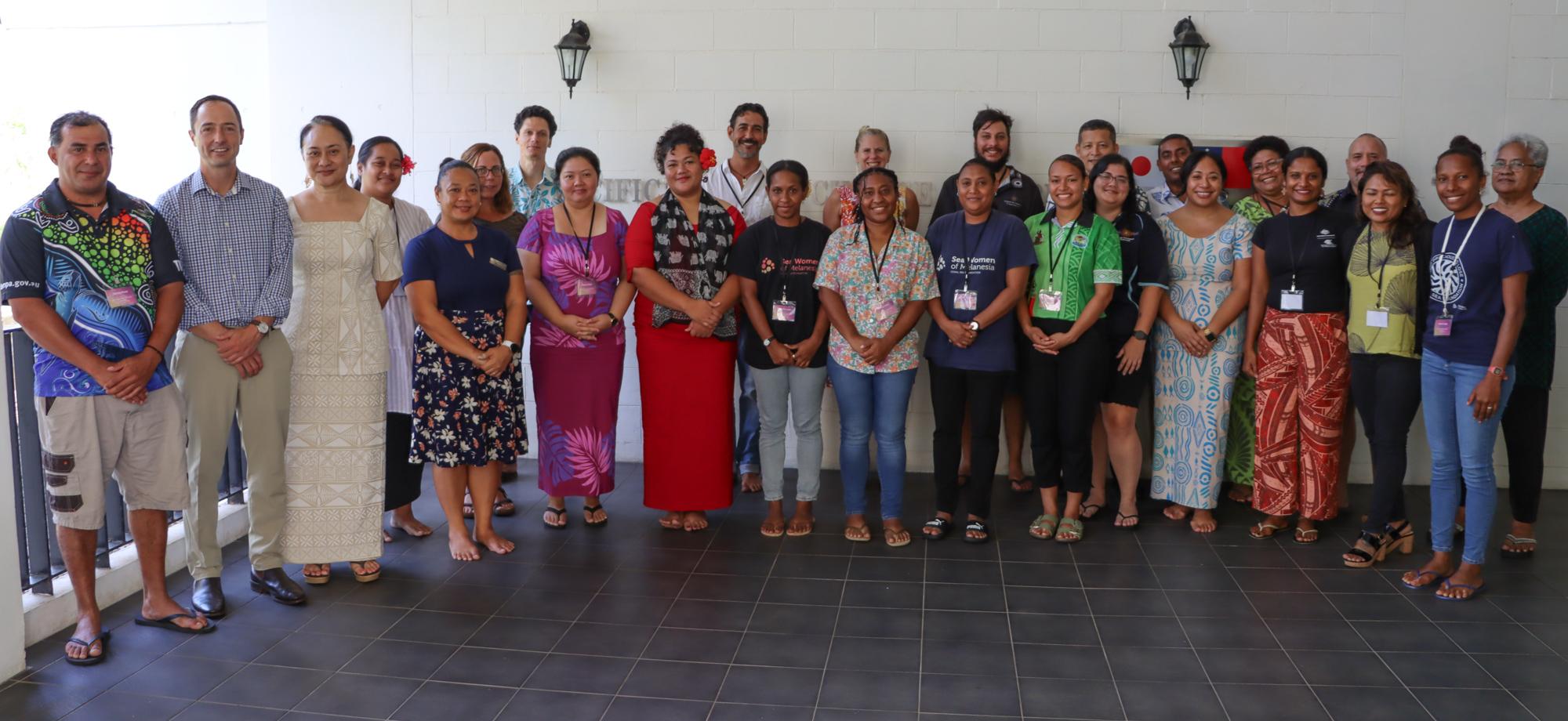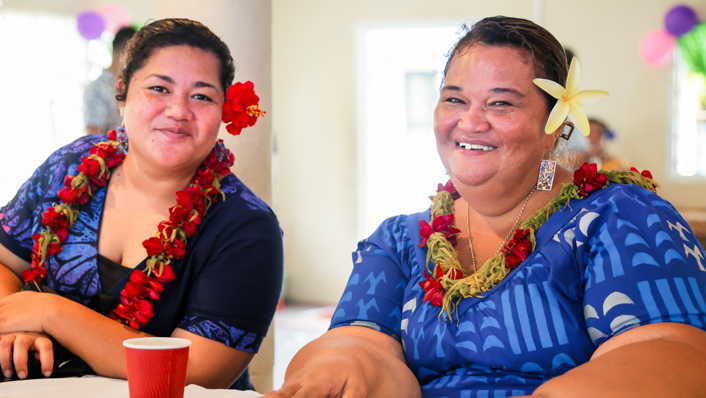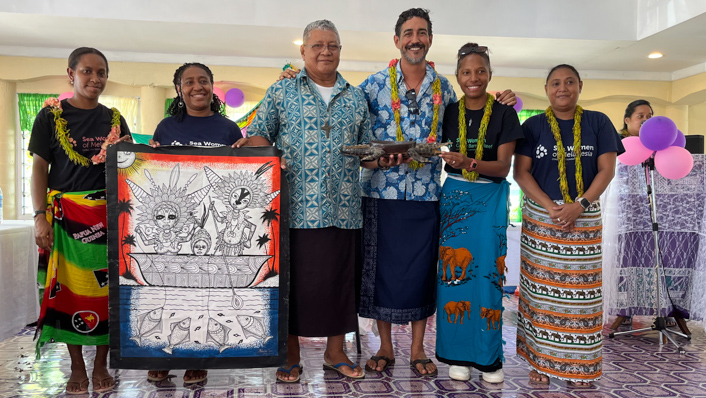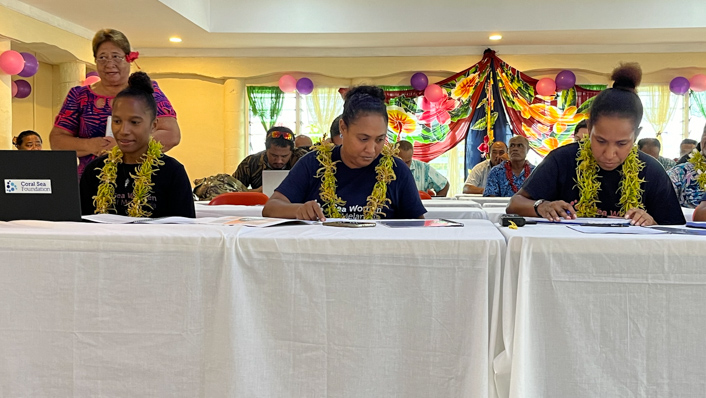AIMS has played a guiding role in helping Samoa draft the design of a national coral reef monitoring program to standardise and integrate local monitoring efforts.
This will help the Pacific nation better understand the status and trends of its coral reefs and fisheries and inform how they are best managed.
In addition, AIMS concluded an eight-month project to incorporate traditional knowledge into coral reef management practises in the Pacific.
This knowledge exchange project brought together Samoan villagers and government officials, Papua New Guinea’s Sea Women of Melanesia reef managers, Australian Traditional Owners from Gidarjil Development Corporation and Conservation International – Samoa, in three intensive workshops held in Samoa and Australia.
AIMS scientists are working with groups across the Indo-Pacific to help them use the ReefCloud digital platform to simplify, speed up and standardise coral reef monitoring, and share up-to-date data.
Both projects were co-funded by the Australian Government through the Department of Foreign Affairs and Trade and co-facilitated by the Secretariat for the Pacific Regional Environmental Programme (SPREP). SPREP is the regional organisation established by the Governments and Administrations of the Pacific charged with protecting and managing the environment and natural resources of the Pacific.
A national coral reef monitoring program in Samoa
Samoan Government officials and relevant stakeholders worked together in a five-day workshop in February, facilitated by AIMS and SPREP, to design and develop a national coral reef monitoring program. This was followed by a two-day workshop with local communities.
The workshops reviewed existing monitoring regimes, identified challenges and gaps, and explored new ideas.
Assistant Chief Executive Officer of Samoa’s Ministry of Natural Resources and Environment, Seumalo Afele Fai’ilagi, said the national program will support the Samoa Ocean Strategy.
“ReefCloud is an avenue to assist the Government of Samoa to develop a national coral reef monitoring program and look at an implementation plan,” he said.
“It can also assist with the issue of reliable data available on the status of coral reefs in Samoa.”
Drawing on traditional knowledge for coral reef management
A third and final international traditional knowledge exchange workshop was held in Samoa’s Aleipata village in February, co-hosted by AIMS and SPREP.
The goal was to facilitate an increased, more inclusive, and effective contribution from both coral reef monitoring and traditional knowledge, to inform coral reef management across the Pacific.
Mr Rahul Tikaram, SPREP Coastal and Marine Specialist, Pacific BioScapes Programme, said the project aimed to combine advanced scientific techniques, indigenous knowledge, and local involvement to improve management outcomes.
“This approach aligns with the Pacific Coral Reef Action Plan Areas 2 and 8, promoting traditional wisdom and science,” he said.
“We want to safeguard our precious marine ecosystems, ensuring they continue to support island communities for generations.
“With the monumental task at hand, our commitment to these initiatives ensures a balanced approach to conservation and development in the Pacific despite unprecedented biodiversity threats and resource restraints."
AIMS Research Team Leader Dr Manuel Gonzalez Rivero said ReefCloud brought together innovative approaches in AI, statistics and data visualisation to make monitoring faster, more efficient and collaborative.
“ReefCloud results are summarised in a language that is easily transferable to inform decision makers about how reefs are changing and to identify those that most urgently need protection,” he said.
“Reefs are changing very quickly, so we really need to innovate in how we conserve coral reefs.”
The program is part of a four-year investment by AIMS and the Australian Government to help to build coral reef monitoring capabilities in the Pacific by expanding the use of ReefCloud to support the Pacific Coral Reef Action Plan and to contribute to the Global Coral Reef Monitoring Network (GCRMN).
It is also supported by the Accenture Foundation.




